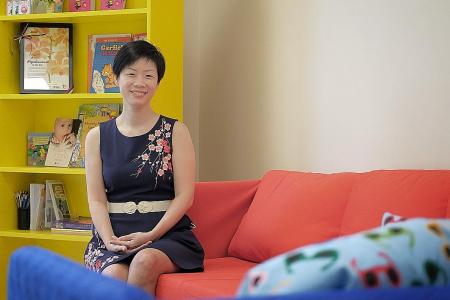Home learning activities can have big impact on young kids: Study
Study shows that if parents provide opportunities for young ones to learn, it helps build their literacy and numeracy skills
Regardless of income and educational levels, parents providing learning activities at home can have a major influence on developing their young children's maths and language skills.
This was seen in Singapore's first kindergarten study that followed 1,537 children from 80 pre-schools from Kindergarten 1 to Primary 1. The study underscored the importance of pre-school education - as well as the role that parents can play.
It found that in kindergarten, children from less affluent homes progress at the same rate as their peers from more affluent homes.
But there is a gap in skills between children from the different income groups when they enter K1, and it remains when they are in Primary 1.
Called the Singapore Kindergarten Impact Project (Skip), the study tracked the children from 2015, when they entered kindergarten, till July 2017, seven months after they enrolled in Primary 1.
National Institute of Education research scientist Ng Ee Lynn, who led the study, said it affirmed the ongoing efforts to improve the accessibility, affordability and quality of pre-school education.
"We are on the right track. Good quality pre-school education is important. The Skip study showed the two years in kindergarten raised the language, maths and other skills such as the ability to focus, which are important to learning."
The early education system has seen significant changes in recent years, including a spruced up curriculum and better training for educators.
She added: "The other significant finding is that what parents do with their children at home matters. Despite their education or income level, if they provided opportunities for children to learn, be it counting games or singing rhyming songs, it helps to build a child's literacy and numeracy skills."
The study also found that reading books in the mother tongue language at home contributes to the children's level of vocabulary at K1.
In terms of executive functioning skills that are crucial for learning, such as the ability to pay attention and juggle multiple tasks, the team found that while children from lower- income families may enter K1 with lower executive functioning skills - as well as lower literacy and numeracy skills - they went on to improve on these skills at the same rate as their peers from K1 to Primary 1.
Said Dr Ng: "Given the importance of the home environment in children's developmental outcomes, existing government programmes such as KidStart to strengthen parental education and support for children from disadvantaged homes will be important to level the playing field."
FOR MORE, READ THE STRAITS TIMES
Get The New Paper on your phone with the free TNP app. Download from the Apple App Store or Google Play Store now



